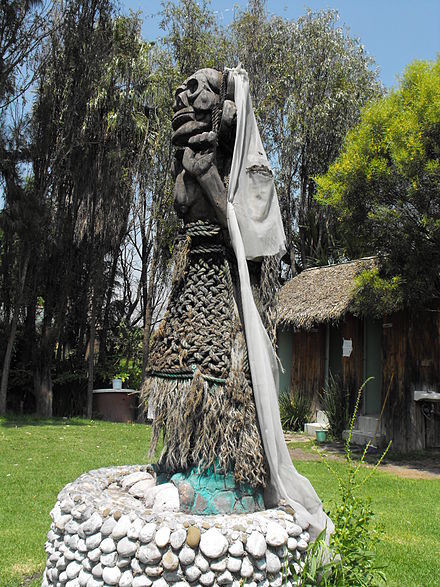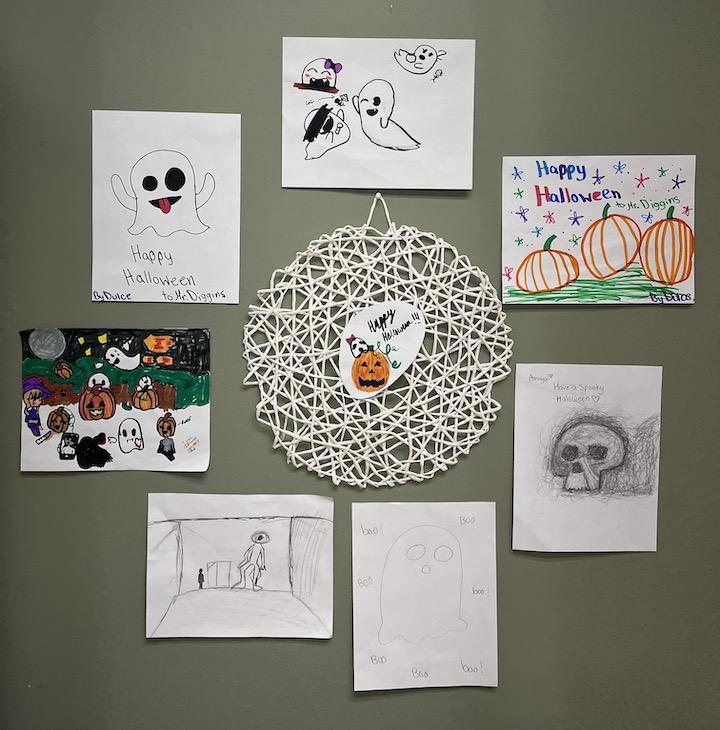With Halloween and Día de los Muertos just around the corner, ghost stories and scary movies have been regular points of discussion at San Miguel Middle School in Tulsa, Oklahoma. Listening to these conversations, I thought that the topic could provide a unique insight into the thought processes and beliefs of my students, so I asked them: do you believe in ghosts?
The sixth graders were immediately excited, and one of them asked me to turn off the lights in the classroom and put on spooky music to set the mood. Interested to see where this was going, I obliged and set the scene and once again asked, do ghosts exist? What followed was an excited sequence of students volunteering to share ghost stories, some that were well known such as La Llorona (which in itself sparked comments like “La Llorona is just a story,” “La Llorona is real but she is back in Mexico,” or “La Llorona is real and around here, so you should be careful”), while others shared more personal stories, such as hearing mysterious noises when no one else is around. I didn't have this discussion in mind initially, but the conversations about these stories seemed to range between some students believing the ghost stories, others being unsure, others not believing at all, and some just happy to be telling ghost stories during class instead of doing math.

The seventh graders were eager, but instead of wanting to share ghost stories, they were adamant that ghosts were not real. When I tried to get more information about why they thought people might make up ghost stories, the overwhelming answer was that they just wanted to scare people. I wanted to dig a little deeper, so I asked whether anyone thought ghost stories around the world might have to do with people wanting to know what happens after death and having trouble coming to terms with losing someone. In answer to this, one asked a clarifying question that changed the dynamic of this entire conversation: “Well, are you asking about ghosts or spirits?”
In my mind, ‘Do you believe in ghosts?’ would naturally draw in conversations about ghosts, spirits, banshees, revenants, and phantoms, but I quickly learned my students my didn't see it that way. The confidence with which the seventh graders wrote off the existence of ghosts evaporated with the new question of “Do you believe in spirits?” When I asked to clarify the difference between the two, the generally held opinion seemed to be that ghosts are monsters in ghost stories, but spirits are what remains of someone who has died but still has some connection to the living world.
From here the conversation took on a new level of solemnity, and even students who were still skeptical were respectful of the new stories. These stories centered around family members who talked about feeling a presence soon after a loved one died, or what they believe the process of dying would actually be like. When I brought this clarifying question back to the sixth graders, there was a similar reaction, and the conversation took a turn to discussing how belief in spirits would interact with our belief in an afterlife and the souls of the dead moving on to purgatory and heaven. This prompted great questions and discussions about whether you would have a chance to say goodbye to loved ones as a spirit, or if you would simply go "poof!" and separate from your body and appear in heaven. This turn made students who did not believe in ghosts more contemplative and unsure, and it had a similar impact on the students who had been adamant that ghosts were real too.
Once the conversation focused on the soul after the body dies, everyone took the conversation more seriously and genuinely thought about what happens after death. I did not expect these twists and turns at the beginning of the conversations, but it was fascinating to hear my students articulate their beliefs about important but abstract concepts like spirits and life after death.
 Alliance for Catholic Education
Alliance for Catholic Education
